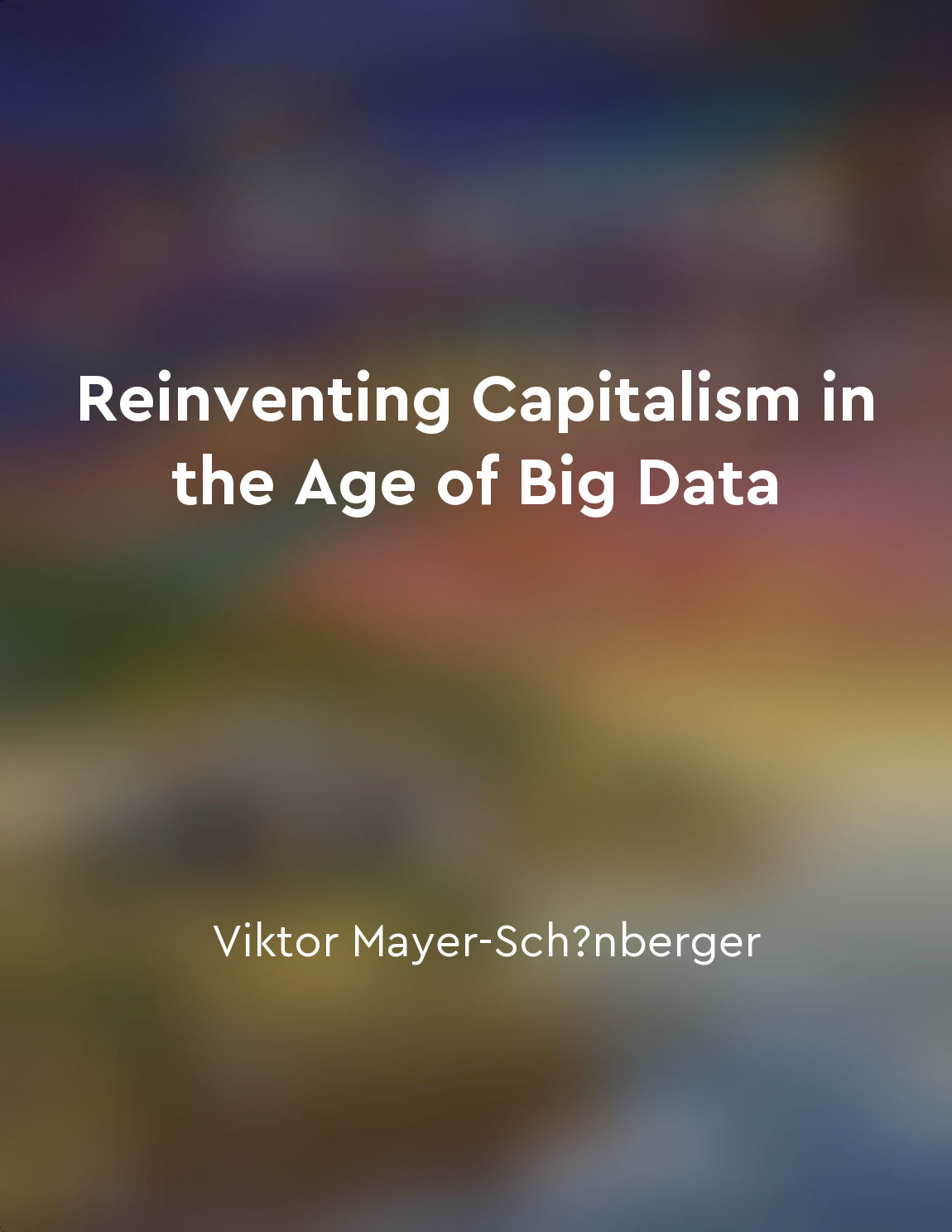Big data shapes our understanding of the world from "summary" of The Internet of Us: Knowing More and Understanding Less in the Age of Big Data by Michael P. Lynch
In our data-driven world, the sheer amount of information available to us is staggering. This influx of data has the potential to revolutionize our understanding of the world around us. By analyzing patterns in massive sets of data, we can uncover insights that were previously impossible to grasp. However, this abundance of information comes with its own set of challenges. While big data provides us with a wealth of knowledge, it can also lead to information overload. As we drown in a sea of data points, it becomes increasingly difficult to discern what is truly important and meaningful. Moreover, the reliance on big data can sometimes obscure the nuances and complexities of the world. By reducing phenomena to quantifiable metrics, we risk oversimplifying the rich tapestry of human experience. This reductionist approach may result in a superficial understanding that fails to capture the full depth and breadth of reality. Furthermore, the algorithms that drive big data analysis are not infallible. They are subject to biases and limitations, which can skew the results and perpetuate misinformation. In this way, our understanding of the world may be shaped not only by the data itself, but also by the algorithms that interpret it. Despite these challenges, big data undeniably plays a crucial role in shaping our understanding of the world. It has the power to illuminate hidden patterns, predict future trends, and inform decision-making on a global scale. As we navigate this data-driven landscape, it is essential to approach big data with a critical eye and a nuanced perspective. By doing so, we can harness the potential of big data while remaining mindful of its limitations and pitfalls.Similar Posts
Foster a growth mindset in individuals and organizations
The key to success in any field is not merely about talent or intelligence. It is about having a growth mindset - the belief th...

Traditional economic assumptions may no longer hold
The fundamental tenets that have underpinned our economic thinking for centuries - assumptions about scarcity, supply and deman...
